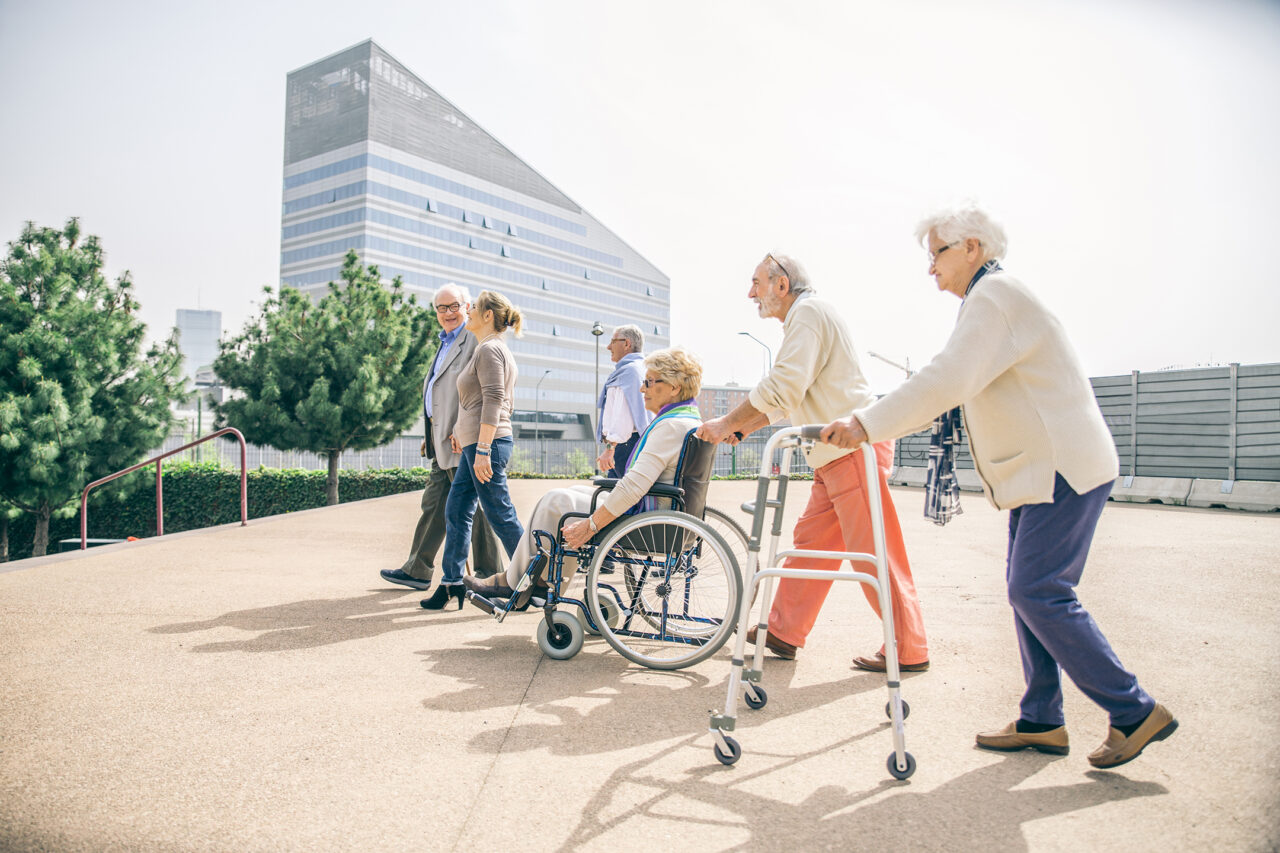By Victor S. Sierpina, MD
Prime health concerns of patients as they age are the 3-D’s: dependence, disability, dementia. No one wants to be in a situation where they are totally dependent on their family or others, disabled from normal activities of daily living, or worst of all, demented with Alzheimer’s or another cognitive problem.
These are deep and very real concerns of so many patients I have treated over the years. Preventing or slowing them is the primary effort of all primary medical care.
Integrative medicine offers a variety of healthy aging options, and they are embedded in the practical advice from an excellent recent article, “A 4-pronged approach to foster healthy aging in older adults.” (1)
The prongs are 4-M’s: monitoring health, mobility, mentation, maintaining social connections.
Let’s go through them one by one.
Monitoring health includes utilizing Medicare Annual Wellness visits or other equivalents to support supervision, health promotion, and risk reduction. Sometimes these are done by mobile screening or by home health visits sponsored by insurance companies. Whatever methods should have goals to identify all health risks, include vaccinations, screening recommendations for hearing and vision, cancer, cardiovascular disease, diabetes, bone and skin health, risks of falls, medication and supplement reconciliation, cognitive issues, mood problems, substance abuse risk, advanced directives, medical power of attorney, social support, nutritional history, and food security, transportation and mobility issues, and frailty screening. Shared decision-making is critical to good communication in this space, for example deciding on age and functionality appropriate screenings like colonoscopy, mammograms, and lung cancer screenings.
Mobility is one critical factor to the quality of life in aging. “If you don’t use it, you lose it” and “Motion is lotion” are two of my favorite catchphrases. Keeping mobile with at least 150 minutes of moderate physical activity impacts all aspects of promoting a healthier life from cardiovascular risk reduction, musculoskeletal strength, and flexibility, bone health, balance, and reduction in all-cause mortality. Maintaining gait speed and keeping muscle mass and strength are crucial goals for mobility exercise. Getting folks up from the couch, moving instead of being sedentary even with simple activities as gardening, walking, stretching can yield dramatic long-term benefits. Finding the right mix of activities that are fun, frequent, and sustainable can be a creative challenge. Adding in things like tai chi, yoga, water exercise, and various chair exercises for the back and torso is helpful.
Mentation is a critical area to attend to in the aging brain. Helping folks remain mentally alert and functional is an active process involving nutrition, physical activity, mental exercises, and attention to mood issues like anxiety and depression. Neglect of these areas can accelerate a decline to dementia and other cognitive losses.
A study by Dr. Martha Morris of Rush University’s Internal Medicine and Nutrition departments published in the journal, Alzheimer’s and Dementia in 2015, “MIND Diet Associated with Reduced Incidence of Alzheimer’s Disease,” is one of the few prospective studies on neuroprotection and dementia prevention. In this study, the MIND diet was the active intervention in over 900 participants 58-98 years old compared to the DASH diet and the Mediterranean diet. The researchers followed these subjects for an average of 4.5 years and found that moderate adherence to the MIND diet may decrease Alzheimer’s disease risk.
MIND, which stands for Mediterranean-DASH Intervention for Neurodegenerative Delay, is a hybrid of the Mediterranean diet and the Dietary Approaches to Stop Hypertension diet, DASH diet. According to the study, “the MIND diet score emphasizes natural plant-based foods and limited intakes of animal and high saturated fat foods but uniquely specifies the consumption of berries and green leafy vegetables [and nuts], nutritional sources found to be especially helpful in other studies of cognition. The MIND diet score was associated with a slower rate of cognitive decline equivalent to 7.5 years of younger age among the participants in the top third of MIND diet scores compared with the lowest third.”
Here are some additional integrative suggestions for improving memory:
- Stay mentally challenged through games, learning, and similar activities
- Maintain active social engagement
- Exercise a minimum of 30 minutes, four to six days per week
- Reduce stress with daily meditation, yoga, tai chi, or other mind-body programs
- Sleep seven to eight hours per night
- Eliminate simple carbohydrates, processed food; eat at least 5-7 servings of fruits and vegetables daily and non-farmed fish at least 1-2 days a week.
- Take melatonin, methylcobalamin, vitamin D3, omega-3 fish oil, and coenzyme Q10
- Fast for 12 hours between dinner and breakfast, and for three hours between dinner and bedtime each day
- Optimize oral hygiene to reduce inflammation
- Try Gingko biloba 120-240 mg daily
Maintaining social connections has been well researched as helping keep older adults healthier longer. A rich social network provides opportunities for support in times of need or for volunteer activities, conversations, social activities, and an input of new ideas and interests that keep life worth living. As friends and family pass, the circle of acquaintances can constrict gradually leading to increased loneliness and isolation which are major risk factors for premature death and morbidity (up to 30% increase) which has been worsened by isolation enforced by the recent pandemic. Health care is an important connection point for isolated older people and a place to identify social support and context.
In summary, a multi-dimensional, team-based program including the 4-M’s is an evidence-based, integrative approach to improving quality of life and vibrant healthy aging.
References
- Wilson LM, Colistra AL, Giusto E, Hansen SE. A 4-pronged approach to foster healthy aging in older adults. The Journal of Family Practice. October 2021: 70(9): 376-385.


